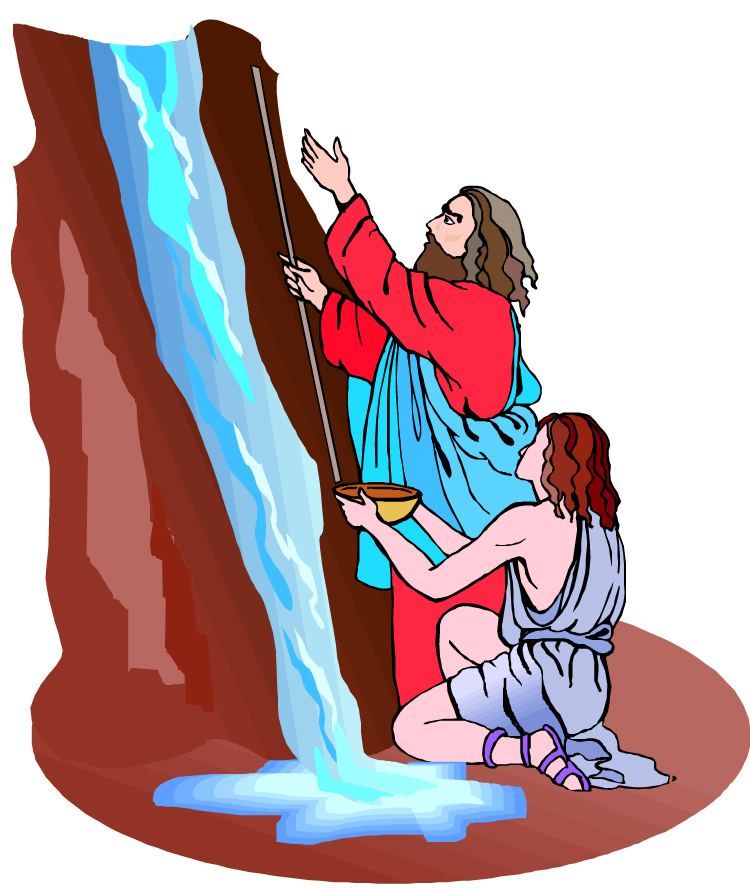
1 Corinthians 6
1 Corinthians 6:12–13, All things are lawful.
Many Christians will casually read this Bible statement by Paul and assume that the Torah-law was done away with. Is this really what Paul is saying here and does such an interpretation line up with the rest of Paul’s writings as well as the truth of the entire Bible? Let’s look at this statement logically and in the larger context of Scripture to see what the truth really is.
When Paul said that all things are lawful to him, what do you think he meant? Is it now permissible to violate the laws of Elohim and to murder, commit adultery, lie, steal, have sex with animals, practice witchcraft, and we can also add break the Sabbath, eat pork, etc., etc.? Obviously, violating the commands of Elohim wasn’t what he meant here, for doing such is, by biblical definition, sin (1 John 3:4), and those who love Yeshua will not be sinning, but will keeping his commandments (John 14:15, 21). Moreover, it was our sin that put Yeshua on the cross, so why should we mock Yeshua’s death by continuing to practice sin? In fact, prior to 1 Corinthians 6:12, Paul listed a number of sins that will prevent one from entering the kingdom of heaven including drunkenness, sexual immorality, theft and so on. So obviously, breaking the laws of Elohim was not what he meant in verse 12. If Paul is here permitting the eating of unclean meat that the Bible forbids and calls an abomination (Lev 11), then he is also permitting sexual immorality—a sin which he juxtaposes in verse 13 with the eating of certain foods.

So if Paul wasn’t opposing the biblical dietary laws in verses 12 and 15, what was he really saying? According to David Stern in his Jewish New Testament Commentary, Paul was coming against the sexually libertine attitudes of the saints in Corinth whereby they had permitted the man who was having sexual relations with this stepmother. Moreover, the church was even allowing the sinner to remain in fellowship with the saints there and to even participate in the Passover or Lord’s Supper communion table and to celebrate the Feast of Unleavened Bread (which the removal of sin). Stern goes on to say that the phrase, “All things are lawful to me…Food for the stomach…” is really analogous to the modern phrase, “If it feels good, do it”—a concept which Paul strongly opposes. Beale and Carson concur with Stern on this in their commentary on this verse (Commentary on the New Testament Use of the Old Testament, p. 713). In verse 15, Paul goes on to make the point that our bodies are the temples of the Set-Apart Spirit of Elohim and that we need to treat them as holy vessels by not engaging in sinful practices (whether sexual immorality or eating unclean meats).
Keener agrees with Stern that Paul was confronting the ungodly and licentious Greek philosophers who would excuse their libertine carnal appetites by saying “I can get away with anything.” Paul, on the other hand, counters this by saying, “Maybe so, but ‘anything’ is not good for you” (The IVP Bible Background Commentary of the NT, pp. 464–465). Keener goes on to say that “‘Food for the stomach and the stomach for food’ was a typical Greek way of arguing by analogy that the body was for sex and sex for the body….That God would do away with both reflected the typical Greek disdain for the doctrine of the resurrection (chap 15), because Greeks believed that one was done with one’s body at death [which is why they reasoned that it was permissible to do whatever you pleased with your body now]. Paul responds to this Greek position with the Old Testament/Jewish perspective that the body is for God and he will resurrect it” (i.e. in v. 14, ibid.).
Paul then goes on to explain why a philosophy that excuses sinful behavior is not acceptable to Elohim or beneficial to the saint.
1 Corinthians 7
1 Corinthians 7:19, Circumcision is nothing, and uncircumcision is nothing.
The Significance of Circumcision Explained—A Whole Bible Perspective

What is Paul saying here? Is he confused, or does he have a larger principal and perspective in view? Paul’s bottom line in all of his writings is that circumcision is not a salvational requirement. If it were, then, obviously, women could not saved! As we shall see, however, the Scriptures teach that in the future, for those in certain ministry situations, circumcision will be a requirement (Ezek 44:7, 9). To understand the issue, let’s briefly discuss what the Scriptures say about circumcision.
Some will say that circumcision of the heart (Rom 2:29) is a solely “New Testament” concept that happily has replaced physical circumcision. This is not quite true, for YHVH has desired his people to have circumcised hearts from the time of Moses (Deut 10:16; 30:6) and Jeremiah (Jer 4:4). What’s more, YHVH will require the priests who will serve in his millennial temple (an archetypal model of YHVH’s plan of salvation through Yeshua’s death on the cross) to not only be circumcised in the heart, but in the flesh as well (Ezek 44:7). Not only that, but all those who will enter that sanctuary, both Israelite and non-Israelite, must be circumcised physically and spiritually (Ezek 44:9).
Physical circumcision is not a requirement for salvation, and Paul teaches that redeemed believers not only can be saved without undergoing the rite of physical circumcision, but that everyone (including women) are circumcised through Messiah’s circumcision (Col 2:10–13; see also Phil 3:3), even as each person has “died” to sin and has been resurrected to new spiritual life through faith in and identity with his death, burial and resurrection (Rom 6:3–8).
Paul never disparages physical circumcision, except when false the teachers of his day made it a requirement for salvation, or when those who were physically circumcised were parading it as a mark of spiritual superiority. Paul goes on to say that physical circumcision, however, is a sign, mark or token, and a seal (placed on someone) or an impression or stamp made by a signet ring signifying ownership, something which distinguishes one from others and by which one is known (Rom 4:11). Circumcision was a sign of Abraham’s righteousness and the faith he had in YHVH and a mark of YHVH’s “ownership” of Abraham.
Moreover, from the example of Abraham, we learn that faith precedes circumcision, but when one is circumcised, one commits to walk in the faith and righteousness of Abraham, and to enter into a deeper, more committed and more intimate (covenant-based) walk with YHVH Elohim.
Perhaps physical circumcision as a mark of a deeper and more committed relationship with YHVH is the reason it, along with heart circumcision, will be required of all who will be allowed to not only minister in, but also to visit the millennial temple (Ezek 44:7, 9).
In the past, the temple represented YHVH’s presence on earth, and it was viewed as a sort “the gateway to heaven.” In ancient times, those who sought the privilege of visiting this special and set-apart spot had to prepare themselves physically and spiritually to approach the Creator. They had to be ritually and spiritually pure, and physical circumcision was an aspect of this. For those of the priesthood who will be ministering in the millennial temple, physical circumcision will still be a requirement to fulfill covenantal, ritual cleansing and the requirements of spiritual types and shadows, for which that institution will be used to teach the unsaved peoples of the earth during the Millennium the truths of YHVH’s plan of salvation as it did in the past. Physical circumcision will be an outward sign that will (literally) go before the priest showing that he has committed himself to putting a way the filth of the world as represented by the foreskin.
Now if one is circumcised and doesn’t follow the Torah, then it is as if he weren’t circumcised at all (Rom 2:24–29). In YHVH’s spiritual economy from Genesis to Revelation, YHVH always looks primarily at one’s heart attitude rather than at outward show involving religious rites, rituals and ceremonies. However, Yeshua clearly teaches in his Sermon on the Mount that YHVH not only prefers heart, or spirit of the law obedience, but letter of the law obedience also. He desires his people to love him with all their heart, soul, mind and strength, which involves both a letter and the spirit of the law obedience.
While physical circumcision is not a requirement for salvation (much like water baptism), in doing so, one is demonstrating one’s desire to be obedient to all the Word of YHVH including the commands of Torah. Yeshua clearly stated that not one jot or tittle of the Torah has been nullified, and that those who keep all of YHVH’s Torah commands will obtain a higher reward in his eternal kingdom than those who do not (Matt 5:17–19), and they will be able to approach closer to him in his temple in the Millennium.
1 Corinthians 9

1 Corinthians 9:20–22, Under the law. David Stern in his commentary asserts that this term means “under a legalistic perversion of the Torah,” that is, that Torah heredoesn’t mean Torah, but rather a skewed view of Torah as proffered by the Judaizers (i.e. those of the sect of the Pharisees or those who were under their influence who asserted that one needed to be circumcised and to keep the law of Moses in order to be saved, see Acts 15:1, 5).
In this passage, those who are “under the law” are not the Jews, since Paul already mentions them at the beginning of verse 20, but Gentiles who are living under a false notion that one can be saved by keeping the Torah. Paul then goes on to describe the next group of Gentiles—“those who are without the Torah” (verse 21). The third group of Gentiles to which Paul makes reference is “to the weak” (verse 22), who are those who are new to the faith and tend toward a more punctilious or legalistic obedience to the Torah.
In summary, Paul is saying that he is sensitive to the spiritual paradigm of those to whom he is preaching the gospel, has learned to relate to all people from all backgrounds and, as such, has become all things to all men in an effort to save some.
Paul, at the same time, asserts that he is not “unTorahed” himself, but rather is “under or in subjection to the true Torah (as opposed to a legalistic perversion of the Torah) through his relationship with Yeshua (verse 21). This statement of Paul lines up perfectly with other statements he makes with regard to his pro-Torah beliefs and lifestyle (e.g. Rom 3:31; 7:12,14; Acts 21:24; 4:14; 25:8; 28:17; 1 Cor 7:19).
1 Corinthians 9:20
“Under the Law to Messiah” Explained
And unto the Jews I became as a Jew, that I might gain the Jews; to them that are under the law, as under the law, that I might gain them that are under the law; to them that are without law, as without law, (being not without law to Elohim, but under the law to Messiah,) that I might gain them that are without law. To the weak became I as weak, that I might gain the weak: I am made all things to all men, that I might by all means save some.

What does Paul mean when he says “under the law to Messiah”? The answer should turn the theology of the whole mainstream Christian church with regard to its view of the Torah-law totally on its head! It is evident that when Paul uses the phrase, “under the law” in his writings, he at times infuses different connotations into this phrase. Only by studying the context of the surrounding passages in which this phrase is imbedded can we understand the exact connotation that Paul is attaching to the term “under the law.”
In this passage, the phrase “under the law” is found four times, and doesn’t connote “under the penalty of the law,” (as is the case with Paul’s usage of the term in Romans). The first three times this phrase is found here it means “in subjection to a legalistic perversion of the Torah” (as David Stern translates it in his Complete Jewish Bible and then explains reasons behind this translation in his Jewish New Testament Commentary). Here Paul identifies several groups of people, each of which had its own view of the Torah. These groups were (a) ethnic Jews, (b) those (ethnic Jews or otherwise) who had come under a legalistic view of the Torah in that they believed, for example, that circumcision was a precondition for salvation (certain Pharisees believed this [see Acts 15:1], and Paul was dealing with this doctrinal perversion in the first several chapters of Romans), (c) those (presumably Gentiles) who had no knowledge of the Torah, and (d) those new believers who were still weak and unstable in their faith.
In Paul’s final usage of this phrase in this passage he adds to the phrase under the law” [Gr. ennomos meaning “in the law”] the two words “in Christ.” This changes the whole meaning of the term under the law. As we have noted above, “under the law,” as Paul uses it can mean “under the [penalty of] the Torah,” or “under a legalistic perversion of the Torah,” but here Paul is referring to Torah obedience in the context of a faith in Yeshua. Is Paul referring here to Christians who keep the Torah? Yes! This is what the first century redeemed believers were, and what Paul confesses here about himself (1 Cor 9:21). Paul’s pro-Torah stance is totally consistent with other apologetic statements he makes concerning the Torah along with his confession to being totally Torah-obedient himself (e.g. Rom 3:31; 7:12, 22, 25; 1 Cor 7:19; Acts 21:24; 24:14; 25:8). Torah obedience was also to be a normative attribute of the life of the redeemed believer then and now (e.g. Acts 21:20; 22:12; Rev 12:17; 14:12; 22:14).
So what specifically does the phrase “not being without the Torah toward Elohim, but “under or in the law toward Messiah” mean? Simply this. There is a keeping of the Torah that is done through men’s legalistic efforts that is devoid of trusting faith toward Elohim, whereby one hopes to earn Elohim’s grace or merciful kindness through human effort. This approach Paul proves in Romans 3 and 4 was never how Elohim intended men to come into a spiritual relationship with him, since it is impossible for men to keep the righteous requirements of the Torah perfectly without sinning. Thankfully, salvation is by the grace of Elohim through faith in Yeshua (Eph 2:8–10). It is through Elohim working through his Holy Spirit through our relationship with Yeshua that we can do the good works (Eph 2:10) of loving Yeshua by keeping his Torah commandments (John 14:15; 1 John 2:3–6; 3:24; 5:2–3). When Yeshua and his apostles use the term commandments in their writings, how do we know that they’re referring to the Torah-commandments? In Luke 18:19–20, Yeshua answers this question when he connects the word commandments (Gr. entole) with the laws of Torah (in this case, the Ten Commandments, which is the cornerstone of or the basis for all the other 600 plus commandments in the Torah).
Therefore, when Paul says “not being without the Torah toward Elohim, but under [or, in] the law toward Messiah,” he is referring to Torah obedience within the paradigmatic context of Elohim’s grace toward us (which covers our past sins and delivers us from the penalty for violating the law, which is death), and to Yeshua living in the redeemed believer’s life through his Set-Apart Spirit, which enables one to love Yeshua by obeying his Torah (John 14:15).
1 Corinthians 10

1 Corinthians 10:4, Rock was Messiah. Here is evidence that in Paul’s mind, the pre-incarnate Yeshua, not the Father, led or accompanied the Israelites through the wilderness. He repeats this assertion in verse nine when he implies that the Israelites tempted Messiah in the wilderness.
1 Corinthians 10:18, Israel after the flesh. It stands to reason that, if in Paul’s mind, there’s an Israel after the flesh, there must be an Israel after the Spirit—or a spiritual Israel. We learn elsewhere that spiritual Israel is the one new man who in Yeshua the Messiah (Eph 2:13, 15) who is neither Jewish nor Greek (Gentile, see Gal 3:28), though he is part of the nation or the spiritual olive tree of Israel (Eph 2:12–13; Rom 11:13–17). Elsewhere, Paul refers to spiritual Israel as “the Israel of Elohim” (Gal 6:16).
1 Corinthians 10:23, All things are lawful. According to the context, Paul is saying that it’s lawful for him to eat meat sacrificed to idols, since there is no Torah law prohibiting him from doing so. However, it is not helpful to do so if it will make a weak brother stumble. He then goes on to explain what he means in verses 25 to 30. With regard to our actions for which there is no Torah prohibition, we must ask ourselves the following questions: Does it edify my brother (v. 23), does it contribute to his well-being (v. 24), does it bring glory to Elohim (v. 31), or does it cause anyone offense (v. 32)? If it doesn’t, then we shouldn’t do it.
1 Corinthians 10:25, Eat whatever. The issue here is not clean versus unclean meats. Rather, it is meat sacrificed to idols or not. According to the Torah, some meat fits the biblical criteria for edibility and some doesn’t. Meat such as pork or shellfish is considered to be unclean, and is designated by the Hebrew word tamay meaning “unclean or impure” and isn’t considered edible. So when Paul uses the term meat, it must be understood in a biblical and Hebraic context. As such, this passage in no way condones the consumption of meat which the Bible deems as unclean or impure and thus inedible.


1)If you are anomia (w/o the law), the law is your enemy instead of your protection because you are an outlaw when what you need to be is an in-law!
2) Lil confused about being circumcised to officiate in the Millennial Temple-I thought these men would be in their glorified bodies?
3) and just a thought Lev 14:4 sounds like the emblems of crucifixion ?
It makes perfect sense to me when Stern talks about the ‘legalistic perversion of the Law’. However, I would prefer to use the wording ‘the then present Jewish Laws’ (The law of the land) which consisted of man made traditions plus YHVH’s laws ( which was at times in contradiction to the traditional laws).
I found the 2 last paragraphs very helpful in understanding the issue.
Thank you, Sonja
The Covenant of Circumcision
B’resheet 17:7-14 This is important if we are to receive our inheritance (eretz Israel).
A very helpful article!
Thank you, John